Petrochemical – Textiles – rPET 04-01-2023 - Arhive
Petrochemical – Textiles – rPET
Crude Oil Prices Trend
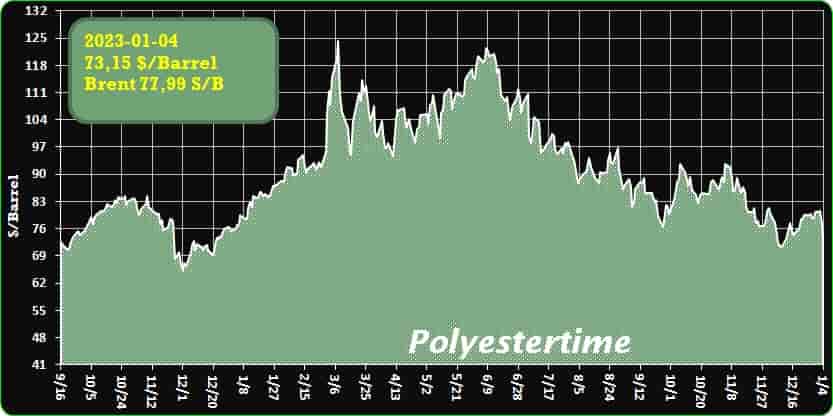
Crude Oil Prices Trend Polyestertime
-Adnoc acquires 25% stake in Borealis
Abu Dhabi-based Mubadala Investment Company is bringing its long-term relationship with Borealis to an end.The company has agreed to sell its remaining 25% stake in Borealis, a leading supplier of advanced and circular polyolefin solutions, to Abu Dhabi National Oil Company (Adnoc), the two companies have announced. The transaction is subject to customary closing conditions and regulatory approvals; financial details of the transaction have not been disclosed.
Once the deal has been closed, Adnoc will hold a 25% share in Borealis with the other 75% owned by OMV, an Austrian multi-national integrated gas and petrochemical company listed on the Vienna Stock Exchange.
For Adnoc, the acquisition is one with strategic importance. The company anticipates significant consumer-led growth in the decades ahead for the chemicals and petrochemical sector. The present investment in Borealis will support the growth of its footprint in the international chemicals and petrochemical sector and open the door to key markets where Borealis operates, particularly in Europe and the Americas.
Dr. Sultan Al Jaber, Minister of Industry and Advanced Technology and Adnoc managing director and group CEO pointed to his company’s existing two-decade partnership with Borealis through the companies’ jointly held Abu Dhabi-based polyolefins company Borouge.
“Alongside OMV, ADNOC will be a co-shareholder in Borealis, with this investment giving further impetus to our local and international petrochemical and industrial growth program and accelerating our transformation into an integrated and global energy player,” he said.
Founded in 1971, Adnoc is one of the world’s leading energy producers. The company has a capacity of more than 4 million barrels of oil and around 11.5 billion cubic feet of natural gas per day and operates across the entire hydrocarbon value chain via a network of fully-integrated businesses for exploration, production, storage, refining, and trading, as well as the development of a wide range of petrochemical products.

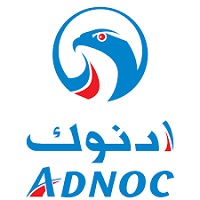
-India’s initiative towards sustainable environment
As part of Mission LiFE (Lifestyle for Environment), the Indian Government unveiled a list of 75 lifestyle practices that can promote climate-friendly behaviour. These actions are listed under 7 categories namely energy saving, water saving, reduced use of single-use plastic, sustainable food systems, waste reduction (swachhata actions), adopting healthy lifestyle and e-waste handling. For reducing plastic use, 11 actions were highlighted in which one was use of recycled plastic over virgin plastic wherever possible.
This also leaves room for a special kind of plastic called Polyethylene Terephthalate (PET) which will need to be seen from a new prism of a green economy. PET plastic packaging can be made not only from its virgin grade but also from recycled PET (rPET) as it is upto 100% recyclable. It not only recaptures the energy, but also translates into numerous life cycles for PET plastic bottles. Petrochemical – Textiles – rPET
Currently, all over the world, everyone is focusing on circular economy, and so is India. Ministry of Environment, Forest and Climate Change (MoEFCC) has played a pivotal role in promoting circular economy across all key sectors by actively formulating policies and promoting projects to drive the country towards a circular economy. Circular economy is cyclic in nature, directing the economy towards reuse, as opposed to waste at the end of a product’s lifecycle.
According to the Chemicals and Petrochemicals Manufacturers Association of India, bottle production from PET accounts for 30% of the global demand. The PET packaging and recycling ecosystem in terms of GDP value is an astounding Rs 7.5 lakh crores and the industry is also one of the largest employment generators in the country, with an employment footprint exceeding 70 lakhs. It is no wonder then that over 50% of rag picker’s earnings come from collecting used PET products.
Indian PET recycling industry is expected to grow exponentially in the coming years, as rPET will also be used in direct food contact applications soon, as it is free from Bisphenol A (BPA), phthalates as well as any other endocrine-disrupting chemicals.
In a recently launched report by Centre for Science and Environment (CSE), it was stated that almost 97% of the collected PET bottles are channelized for making fabric and all the bottles converted to fabric are then claimed to have been recycled as per the existing policies in the country. Petrochemical – Textiles – rPET
Many brands have recently taken charge of recycling pet bottles into garments, which is one method of reducing waste generation. Interestingly, Indian Oil Corporation (IOC) and Bisleri recycle millions of discarded mineral water, cold drinks and other PET bottles to make eco-friendly uniforms for their staff, with the help of advanced technologies.
The Indian PET recycling industry’s turnover will be more than Rs. 13,500 Crores ($1700 million) in the next 4-5 years. PET is slowly and surely becoming the first material of choice in rigid packages, due to its ease of recyclability and its current established recycling systems in India Another focus which needs to be highlighted is the ban on Single-Use Plastics (SUPs) by the Ministry of Environment, Forest and Climate Change (MoEFCC). PET bottles are not banned but are often clubbed with other non-recyclable plastics undermining its unique properties. Small PET bottles (under 1 Litre) fall under threat of ban because of misinformation and faulty linkage with the SUP ban.
However, industry associations like PET Packaging Association for Clean Environment (PACE India) are conducting various initiatives and campaigns to dispel myths and advocate reuse and recyclability around PET plastics.
Today in India, more than 1000 Reverse Vending Machines (RVM) have been installed to encourage the public on the need for recycling and create awareness in the minds of decision-makers about the vast infrastructure existing for PET recycling in India. Recently Coca-Cola India has partnered with 10-Min grocery delivery service, Zepto, for a unique ‘return and recycle’ initiative for PET bottles. This joint initiative seeks to establish an organized process of collection of PET bottles with 100% traceability, to ensure effective plastic waste management. Petrochemical – Textiles – rPET
PET plastic bottles are a popular choice for packaging due to the numerous benefits they provide both to manufacturers and consumers. However, there are myths related to them that are not accurate. For e.g., ‘Plastic bottle left in a car will leach carcinogens into the soft drink it contains’ but there are no carcinogens present in PET plastic. There is also a surprising myth that PET plastics can cause cancer whereas this is yet again factually incorrect. PET products are free from phthalates (i.e., phthalate ester plasticizers) and have no harmful consequences on human body.
A WHO report mentions that PET does not produce any cancer or endocrine-disrupting chemicals and it can be safely recycled. Another common myth is also circulated that glass or aluminum bottles are better than PET bottles. In a comparison of the environmental footprints of bottles, PET often performs better than glass or aluminium bottles as less carbon is emitted during the production of PET bottles than the production of glass bottles. Also, PET bottles are strong, light and shatterproof unlike glass or aluminium bottles.
PET plastics have a low carbon footprint which contributes to India’s goal to achieve net zero emissions by 2070. A combination of renewable energy use and the inclusion of PET/rPET can enable India to meet carbon neutrality commitments in line with the larger vision of a circular economy. We all need to ensure that recycling rates continue to grow and the industry urges people to recycle plastic waste including plastic bottles and not discard them as litter. Petrochemical – Textiles – rPET
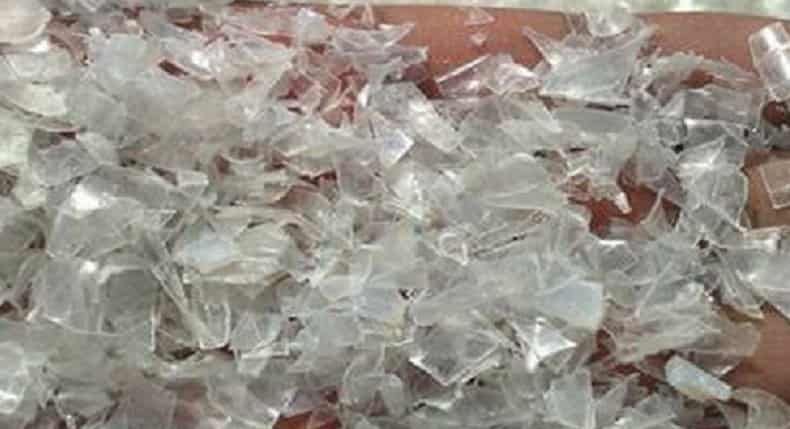
-SABIC, OQ and KPI sign a joint development agreement for a world-scale petrochemical complex in DUQM
SABIC, OQ and Kuwait Petroleum International (KPI) have signed a Project Development Agreement of a jointly owned petrochemical complex in the Special Economic Zone at Duqm (SEZAD), the Sultanate of Oman. The three companies aim to establish a petrochemical complex consisting of a steam cracker and derivative units and a natural gas liquid (NGL) extraction facility. They will conduct the necessary studies and collaborate using their wealth of technical and commercial experience to develop the project with unique attributes that make it globally competitive and profitable for all three partners.
The agreement was signed by Abdulrahman bin Saleh Al Fageeh, SABIC CEO (A); Talal bin Hamed al Awfi – OQ Group CEO; and Shafi Taleb Al-Ajmi, CEO of Kuwait Petroleum International. Petrochemical – Textiles – rPET
Commenting on this agreement, Abdulrahman Al-Fageeh, SABIC CEO (A), said, “SABIC’s collaborative approach has built longstanding relationships of collaboration, delivered innovative solutions and created mutual value for more than 45 years. This agreement enables us to identify and assess opportunities for ambitious and sustainable growth by bringing together our capabilities, expertise and technologies and working collectively with our partners. Our involvement in this well-positioned project is consistent with our growth strategy and Saudi Vision 2030 goals to develop a stronger downstream business, addressing challenges in the petrochemicals industry such as carbon neutrality, and providing diversified and sustainable products.”
Talal Al Awfi, OQ Group CEO said, “OQ is proud of this historic agreement with our partners SABIC and KPI. The agreement is a significant milestone reached between the partners and comes at an important time in Oman along with our 52nd national day celebrations and the near completion of the OQ8 refinery project in SEZAD being undertaken by OQ and KPI through the OQ8 joint venture. This agreement also comes in line with Oman Investment Authority (OIA) plans to attract foreign investments to support realize Oman’s vision 2040 in its endeavour to diversify Oman’s economy”.
KPI’s President and Chief Executive Officer, Shafi Taleb Al-Ajmi commented, “We are pleased to work side by side with OQ and SABIC on this pioneering project in Oman, because working with our regional partners supports KPC’s 2040 strategy for growth in the petrochemical industry and enhances integration between the refining and petrochemical sectors. The project also supports the economic growth and development of the Special Economic Zone at Duqm (SEZAD).”
Petrochemicals’ demand is expected to continue its growth path as living standards and human development improve, particularly in growing markets close to Oman. The project intends to monetise Natural Gas Liquids and other feedstocks from OQ and KPI’s joint venture refinery, OQ8 in Duqm, to manufacture petrochemical products targeting growing markets linked to energy transition, clean technologies, mobility, construction, durable goods, healthcare and packaging amongst others. Petrochemical – Textiles – rPET
The project intends to deploy state-of-the-art technologies to minimise carbon footprint and incorporate circular economy aspects and commit to high environmental standards. This mega project would support the region’s development aspirations, maximizing socio-economic impacts as well value addition to these companies. In addition, the project would also benefit from the excellent location of Duqm being close to markets and taking advantage of the infrastructure which has been developed in the area, as OQ continues in its strategy to help develop SEZAD as manufacturing and logistics hub in line with vision 2040.
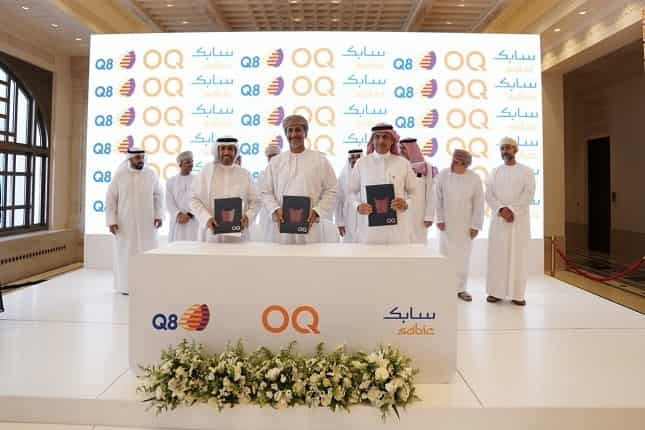
-Israel to abandon plastic tax despite environmental concerns
Israel’s new government will abandon the country’s tax on single-use plastic plates and utensils, Finance Minister Bezalel Smotrich said on Sunday, despite environmental concerns. Petrochemical – Textiles – rPET
The decision, in apparent defiance of global efforts to reduce the amount of plastic waste that is polluting oceans, comes after opposition to the tax from religious parties that said it unfairly targeted their communities.
Smotrich, who was sworn in on Thursday, said his first decision in office is to axe the plastic tax as well as a levy on sugary drinks “as quickly as possible”.
The country’s Environmental Protection Ministry, which has reported a 50% drop in the use of such plastic since the tax was introduced in 2021, said it was studying Smotrich’s decision and its consequences. Petrochemical – Textiles – rPET
There was opposition to the plastic tax among ultra-Orthodox Jewish parties, which are strongly represented in the new government led by Benjamin Netanyahu.
A parlimentary report from November 2021 found that ultra-Orthodox families used plasticware three times more than the rest of the population because they often have large families and low incomes, with many not owning dishwashing machines.
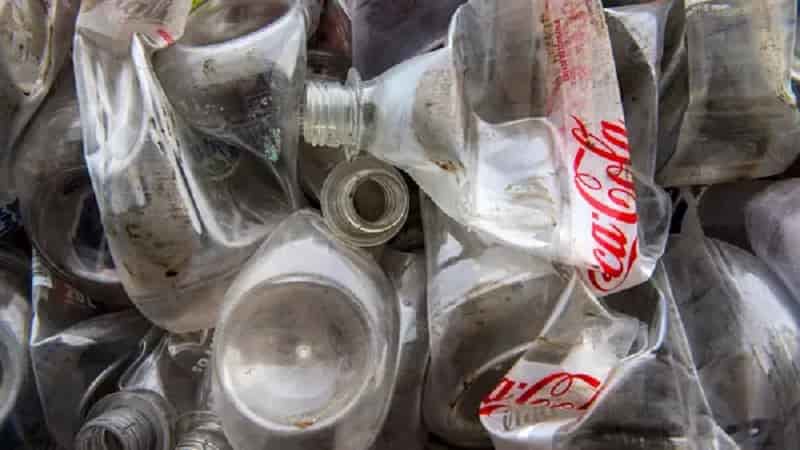
-BKS Textiles to launch sustainable bedding brand at Heimtextil 2023
As the need of the hour is sustainability and circular economy, BKS Textiles is all set to launch a sustainable bedding brand called ‘Ekoscious’ which comprises six collections made using different sustainable fibres Petrochemical – Textiles – rPET
BKS Textiles has emerged as one of the most instantly recognised names in the home textiles segment. The company with its headquarters at Palladam near Coimbatore works with leading home textile brands in the US, UK, Australia, Canada and Japan. The company is all set to launch its ‘Ekoscious’ bedding brand at Heimtextil 2023. Beginning an exclusive interaction with her views on how 2022 has been for the home textile industry globally, Dr. Sudha Anand, Director, BKS Textiles, said: “Overall, 2022 has been a slow year for us and the textile industry. The volume of purchase was low because of increased inventory with the retailers and changes in consumer priorities and spending. Increased energy costs, inflation and increased food prices have resulted in low priority and spending towards home improvement goods.”
New Launch
The company has lined up an exciting launch for the forthcoming Heimtextil 2023 trade show. “As the need of the hour is sustainability and circular economy, we at BKS Textiles are launching our sustainable bedding brand ‘Ekoscious’ which comprises six collections made using different sustainable fibres like traceable organic cotton, linen, hemp, Tencel, bamboo and recycled polyester, ” Dr. Anand informed. Describing the highlights and special features of the collections, she elaborated: “The six collections that form part of the Ekoscious range are made using low impact fibre and incorporate tenets of sustainability and the circular economy. The collections are well-designed as per the seasonal trends and colours.” Petrochemical – Textiles – rPET
“We believe these collections will be well-received at the show as they encompass sustainability, novelty and functionality,” she added. Today, the word sustainability is an overused terminology in textile, to the extent that those companies who are genuinely offering sustainable products don’t get the right attention. Explaining how the products that BKS Textiles offers are the most sustainable and how the company differentiates itself from others in a crowded marketplace Dr. Anand explained: “At BKS Textiles we walk the talk and deliver what we promise. Sustainable textile in its truest sense means a product manufactured from fibres, chemicals and processes that have minimum to zero adverse effect on the environment and products that are biodegradable or recyclable.”
“We ensure that the sustainable textiles that we make match the above requirements and we at BKS Textiles have an ‘AWE’ inspiring sustainability roadmap. This includes:
- A: Afforestation.So far we have planted around 7,000 trees in and around our premises. We intend to add another 2,000 trees by 2025.
• W: Women empowerment. Currently we have 50% women employees and we are intending to increase our women workforce to 65% by 2025.
• E: Green energy. We have two windmills and 40% of our power requirement is fulfilled through these. We are intending to increase the renewable energy to 60% through solar energy by 2025.”
Growth Plans and Outlook
Speaking about the company’s manufacturing capacity and plans to invest in expanding capacity, Dr. Anand said: “Bed linen is our main product category and currently we have the capacity to produce 5,000 sheet sets per day. We have started with other home textiles such as table and kitchen linens as well. We will keep increasing our sewing infrastructure to cater to the increasing demand in the future.” The world has been witnessing a lot of changes in the global geo-political alignments in the last couple of years. Petrochemical – Textiles – rPET
Sharing her views on whether this is helping the Indian home textile industry in terms of more global brands and retailers looking to source from India, Dr. Anand observed: “At present, we export to the US, UK and Europe. We believe that 2023 will be a tough year because of fear of recession and there will be lot of changes in the global economy as well. Nevertheless, Indian textiles have a bright future as we will be the preferred destination for volume cotton goods, not to forget the free trade agreements in place and under discussion. Export of textile looks very promising as of now.”

-Vietnam’s economy grows at 8.02% in 2022, highest in decade
Despite a recession like atmosphere globally, Vietnam’s economy grew at 8.02 per cent in 2022, which is the highest since 2011, according to the General Statistics Office (GSO). Manufacturing, construction and processing was the major economic driver registering an 8.1 per cent growth rate and contributing 38.24 per cent to the country’s total GDP.
Sector-wise, while the retail sector grew by 10.15 per cent, logistics rose by 11.93 per cent during the year. Petrochemical – Textiles – rPET
During the year, the European Union–Vietnam Free Trade Agreement (EVFTA), and the Comprehensive and Progressive Agreement for Trans-Pacific Partnership (CPTPP) helped the Vietnamese economy as these agreements gave access to other countries’ markets.
The GSO said that another factor was that the government successfully managed to keep inflation rate below 4 per cent, the target set by the National Assembly. The Consumer Price Index rose by 4.55 pe cent in the last quarter of 2022, compared to the same period of the previous year, resulting in yearly increase of 3.15 per cent.
For the year 2023, Vietnam has set a target to achieve growth rate of 6.5 per cent.
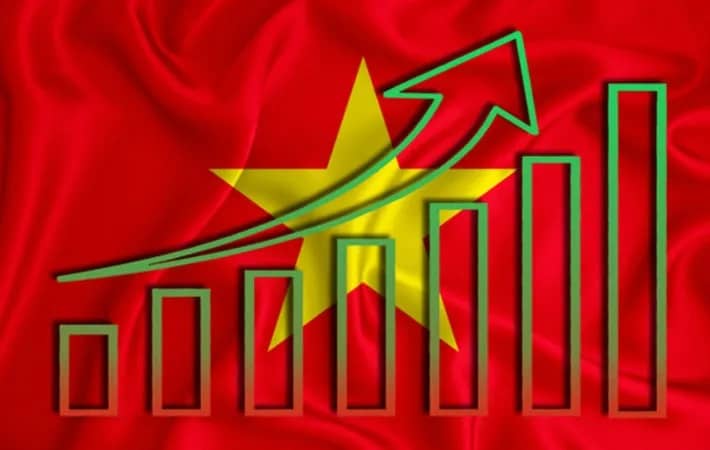
-The fight against plastic waste
We explain how Germany and the other EU countries plan to reduce the enormous quantity of waste. Petrochemical – Textiles – rPET
Hundreds of thousands of tonnes of plastic waste are produced every year. For 2017, a study has revealed precise and frightening figures: in that year, Germany produced 346,831 tonnes of waste from disposable tableware and to-go packaging alone. Every hour, Germans consumed 320,000 disposable cups for hot drinks – and these accounted for only one fifth of the total waste from disposable products.
This waste often ends up in the sea. Around 50 per cent of the waste collected from EU beaches consists of disposable products. The fight against global plastic waste is therefore one of the German government’s central concerns. Last year, an important breakthrough was achieved at the UN Environment Assembly (UNEA): a legally binding agreement on the environmentally sound use of plastic is to be concluded by 2024. Further steps must be taken in 2023. Petrochemical – Textiles – rPET
An end to single-use plastic
As early as 3 July 2021, disposable plastic cutlery, crockery, drinking straws, stirring sticks, cotton buds and balloon wands will no longer be allowed to be produced within the EU. The same applies to to-go beverage cups, fast food packaging and disposable food containers made of polystyrene.
In 2022, disposable carrier bags were on the deletion list. Certain plastic bags are no longer allowed to cross European shop counters. Since then, there has also been a mandatory deposit on disposable drinks bottles, which will also be levied on plastic bottles of milk drinks beginning in 2024.
This year the regulations go further: beginning in 2023, caterers, delivery services and restaurants must also make their contribution to waste prevention. They must now offer reusable containers as an alternative to single-use plastic for to-go food.
Repairing instead of throwing away
In addition to the ban on single-use plastic, recycling and reusable packaging are also playing an increasingly important role. Since the Packaging Act of 2021 came into force, around 50 per cent more plastic packaging is being recycled. Beginning in 2025, disposable beverage bottles must also be made from at least 25 percent recycled plastic.
In 2022, the EU decided that all EU citizens have a “right to repair”. The law is intended to make goods more durable and repairable. After all, 77 per cent of EU citizens would rather have their appliances repaired than replaced.
And that makes sense, too. Because in 2019, for example, more than 53 million tonnes of e-waste were thrown away worldwide. Petrochemical – Textiles – rPET
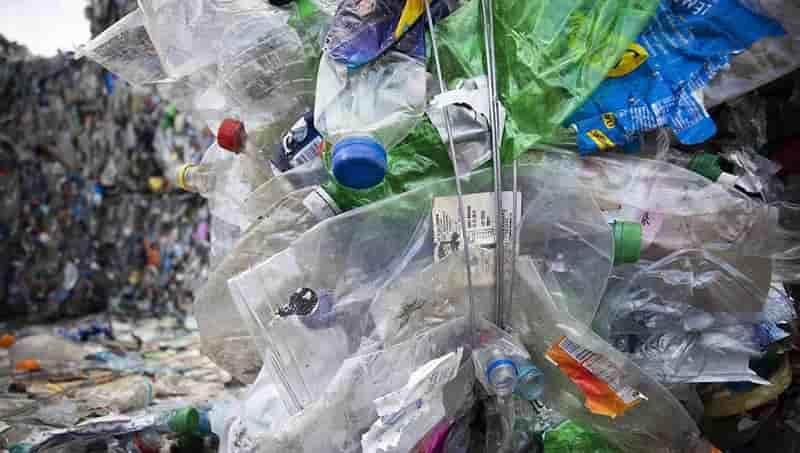
Petrochemical – Textiles – rPET
